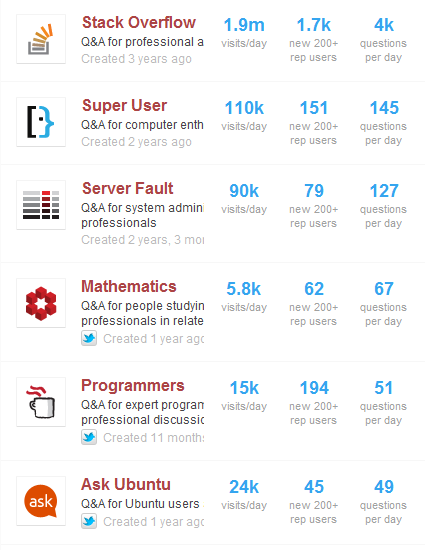I've noticed in a few short months of participation that there is a definite sweet-spot for sites, where your questions tend to get good solid answers, and you have the opportunity to answer questions without camping at your keyboard all night with hopes of being in the first ten entries.
For example, on AskUbuntu or DBA, I can find good questions, and take my time in putting together a thoughtful answer; however, if I do take the time to find questions up my alley in the main SE or SuperUser sites, it's rare that either:
- my answer is not quickly lost in a dozen others (many of which are thoughtless one-liners) or
- the user ever returns to evaluate and/or select the answer.
It's clear that a great deal of excellent research has gone into the creation and nascent care of SE sites (Area 51 is impressive in concept and execution), but I'm curious if there is any work in later portions of the life-cycle. Is there an estimated user-limit or diminishing return threshold for SE sites? Is there any thought of some other transition to increase the value of these sites?


N-1) ??? N) Profit;)